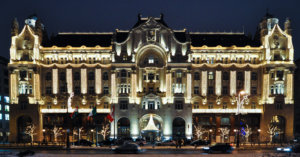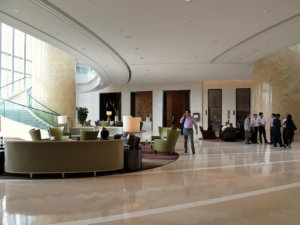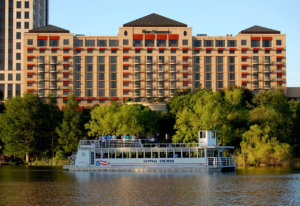Four Seasons: A Global Chain of Excellence
Published on October 25, 2017, at 5:54 p.m.
by Rachel Tomchin.
Why do most hotel chains keep a common theme in atmosphere and architecture? While Embassy Suites, The Hyatt and Ritz Carlton are all wonderful hotels, they could be giving their guests something more, something like Four Seasons.
Four Seasons is a worldwide hotel chain that provides a unique atmosphere and architecture at each of its locations. The experience at each destination varies from the next.
While there are many luxury hotels to choose from, the opportunities Four Seasons offers are incomparable. From seeing wildlife on a safari in Tanzania, to exploring the seas on your own private yacht in the Maldives Islands, each destination provides guests with a list of excursions to enjoy.
Understandably, the expenses for this kind of luxurious hotel are far more than that of many others. However, it’s more than the money-making aspect of it all; it’s about giving consumers something to talk about after each visit … wherever it may be.

“Each hotel is unique and different based on the location that it’s in,” said Tom Segesta, the general manager of the Houston, Texas, Four Seasons. “We find that very important as a brand, to be unique in each location and be part of the locale that you’re in, to represent the area based on the culture, the people and the traditions in that local community.”
Brand
You may think there would be some difficulty keeping one central brand identity with over 100 locations to operate, but that isn’t the case. Four Seasons’ brand identity is represented by three C’s: connection, craftsmanship and character.
According to Segesta, craftsmanship is the dedication and passion each employee has for their profession, which is how they make their connection with the guests. And it’s the character of each employee that makes them right for the job and why they continue to carry out this brand identity at every location.
“We really believe in putting our people first, and taking care of [them],” said Segesta. “If we do that all over the world and create a brand of excellence, we believe we can deliver service that way.”

Atmosphere
Four Seasons calls its people “culture-carriers.”
Working in the hotel business means there’s a high potential of relocating, which is why many of their employees have worked all around the world. It’s important for the culture-carriers to adapt to their present area and address the culture, so they can create a certain atmosphere for that location.
Setting the culture starts with the interior and exterior design of the hotel. When potential customers look up Four Seasons searching for their next destination, the uniqueness of the architecture needs to stand out. And that is exactly what Four Seasons does.
“I think ensuring that the hotel really reflects either materials that have come from that region or artwork that is made in that region and reflects that culture is important,” said Kerri Sholly, the PR director of Austin, Texas, Four Seasons. “And I think that Four Seasons is actually one of the first companies that really embraced that, to ensure that when people are traveling that they’re getting a feel for their destination they’re going to.”
Once they choose their destination and book the room, it becomes the culture-carriers’ job to create the perfect experience and exceed the expectations of the guests.

Architecture
This is where Four Seasons excels. Sholly said that with each location’s unique architecture comes more work in building a great hotel, but that’s what makes Four Seasons outstanding. It goes above and beyond guests’ expectations as a company with its service, hospitality and brand identity.
“I think that the best part is the people. We definitely pride ourselves on hiring the best people and from a PR perspective and working within the company there is just a level of passion for providing the best experience that you may not find with other companies but at Four Seasons,” said Sholly.
It’s incredible that one hotel chain can have so many locations with such a different atmosphere at each — thus, making Four Seasons not only an enjoyable place to visit, but to also a great place to work.
“I really enjoy the accountability and responsibility as a company. Each hotel is very unique to its location, and we’re all responsible and accountable for delivering service to our guests,” said Segesta. “When things are great, you celebrate the responsibility that you did well, and when things aren’t so good, you have to be accountable for that also.”
A hotel like Four Seasons is built over time and requires all of its people to make something great, and that’s just what the company has done.




